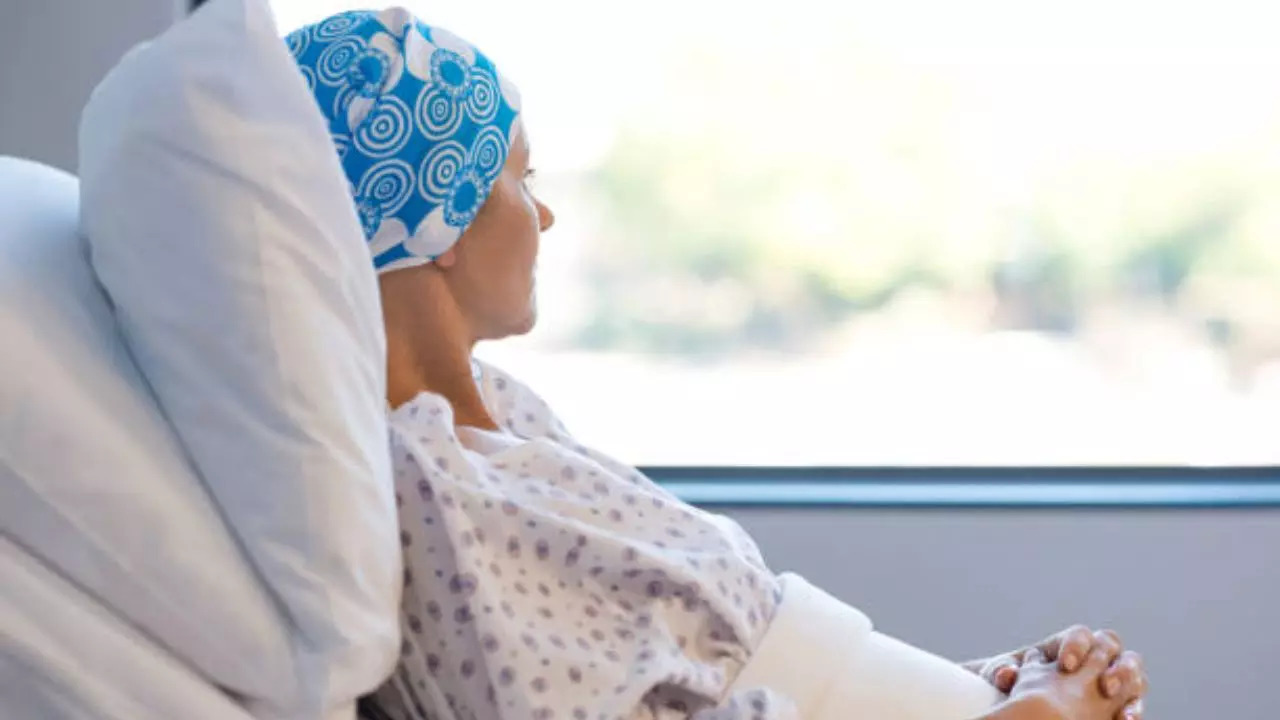How to take care of your skin during chemotherapy? Expert gives tips
Chemotherapy helps fight cancer, but its effect on skin, hair and nails can be challenging. But worry no more! We got in touch with a health expert to share tips to reduce the side effects of chemotherapy on skin health. Read on to know more.

How to take care of your skin during chemotherapy? Experts share tips (Image courtesy: iStock)
chemotherapy is a widely used treatment in the fight against cancerMillions of patients around the world see chemotherapy as a ray of hope. Although it is effective in targeting and destroying cancer cells, chemotherapy also has many side effects, particularly affecting the skin, hair and nails. These skin-related complications can significantly impact a patient’s quality of life during treatment.
Hence, we got in touch with dermatologist Dr Akanksha Sanghvi, who shared some tips to keep your skin healthy. Skin Health Under control through chemotherapy.
Effects of chemotherapy on the skin
Dr. Akanksha explains that chemotherapy can have a very bad effect on skin health, which can lead to a number of problems. These include:
Dryness and itching: Dry skin is one of the most common complaints among chemotherapy patients. This condition can be very itchy, causing even more irritation if not properly managed. To reduce dryness and itching, experts recommend:
Apply moisturizer regularly: Using a gentle, fragrance-free moisturizer can help the skin retain moisture. Applying a moisturizer immediately after bathing can help retain moisture and soothe skin irritation.
Bathing in lukewarm water: It is important to avoid hot water as it strips the skin of its natural oils, causing the skin to dry out. Bathing in lukewarm water can reduce this risk.
Humidifier: Adding moisture to the air through a humidifier can help combat dry skin, especially in dry or cold climates.
Gentle cleansers: Gentle, soap-free cleansers are less likely to irritate the skin than harsh products.
Rashes and redness: Some chemotherapy can cause skin reactions, causing rashes and redness. These reactions can vary in severity, but can be distressing for patients.
Gentle care: Using a mild cleanser and moisturizer can soothe irritated skin.
Avoid scratching: Although it may be tempting, scratching can increase swelling and lead to infection. Applying a cold compress to the affected area may provide temporary relief.
increased sensitivity to the sun
Chemotherapy can cause the skin to become more sensitive to sunlight, increasing the risk of sunburn. This sensitivity is known as photosensitivity, which requires patients to take extra precautions when exposed to the sun. Dr Akanksha shares some important tips to protect your skin from UV rays.
– Sun protection: Wearing protective clothing, including a wide-brimmed hat and sunglasses, can protect the skin from harmful UV rays.
– Sunscreen: A broad-spectrum sunscreen with an SPF of 30 or higher is a must daily application, even on cloudy days. Sunscreen should be reapplied every two hours when outdoors.
– Limit sun exposure: It is advisable to avoid prolonged exposure to the sun, especially during peak hours when UV radiation is strongest.
Changes in nails
Dr. Akanksha explains that chemotherapy can also affect nails, making them brittle, discolored, or prone to cracking. These changes can be both physically uncomfortable and distressing for patients.
– Nail care: Keeping nails trimmed and filed can prevent breakage and reduce discomfort.
– Protect your nails: Protecting your nails from injury by wearing gloves while doing housework or gardening can help reduce damage.
– Gentle products: Using gentle nail care products can prevent further irritation and promote nail health.
What is mucositis?
Although it is not strictly a skin disease, mucositis—inflammation of the mouth and throat—can significantly affect the surrounding skin. Mucositis is a common side effect of chemotherapy, especially treatments involving the head and neck area.
– Oral hygiene: It is very important to maintain good oral hygiene. Gently brushing with a soft-bristled toothbrush can reduce irritation.
– Mouthwash: Expert-approved mouthwashes can soothe irritation and help prevent infection.
Staying hydrated is important to reduce dryness in the mouth and throat, which can contribute to mucositis.
Get the latest news on Times Now as well as breaking news and top headlines from across health and the world.
cancer


